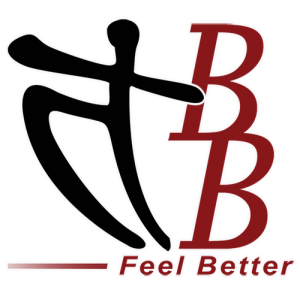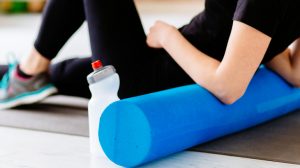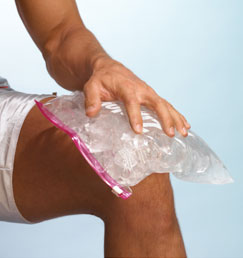How Accurate Is That Test?
Physical assessment is considered one of the most accurate ways to assess function of the locomotor tissues of the body. While we can often gain valuable information about structural problems through high-tech diagnostic procedures like X-ray or MRI, these procedures tell us very little about the function of the tissues involved in creating and limiting movement.
Some of the most detailed information practitioners gather from physical examination comes from a group of procedures called special tests. This group includes methods such as active range of motion; passive range of motion; manual resistive tests; and special regional orthopedic tests. The special regional orthopedic test is a particularly important element of the assessment process. This test is designed to give information about a particular injury or condition.
A practitioner’s success in identifying a client’s problem is often directly related to his/her ability to perform good assessment procedures such as special regional orthopedic tests. The practitioner must be able to perform the test correctly. Other factors also come into play in determining how effective that assessment procedure is, and consequently how effective the practitioner is at identifying the client’s problem.
Accuracy in special regional orthopedic tests is affected by the relationship of two related concepts – sensitivity and specificity of the test. Sensitivity is the percentage of subjects with the condition who also show a positive result on the test. It determines how “sensitive” (accurate) the test is at determining the condition when it is present. Specificity is the percentage of subjects without the condition who show a negative result on the test. It determines whether the test can show if someone doesn’t have the condition.
Take as example a sample of people in an experiment: some with carpal tunnel syndrome, and some without. If a special regional orthopedic test like the Phalen’s test is performed, and everyone tests positive for carpal tunnel syndrome, it means that everyone in this group who had carpal tunnel syndrome got a positive test. The sensitivity of the test in this instance is considered high. However, all the people who don’t have carpal tunnel syndrome also tested positive; there were no negative tests, even for people without the condition. Therefore, this test’s specificity is low.
Certain commonly utilized special orthopedic tests may not have a high degree of sensitivity or specificity, yet are frequently used as guidelines for evaluating the presence of a particular condition. A good example of this is Adson’s maneuver, used for identifying thoracic outlet syndrome. To perform Adson’s maneuver, the practitioner finds the client’s radial pulse at the wrist, then brings the client’s arm back into extension and lateral rotation. The client is instructed to look over his/her shoulder toward the affected side and take in a deep breath. If the intensity of the pulse diminishes, the client is suggested to have entrapment of the brachial plexus and subclavian artery by the anterior and middle scalene muscles — commonly referred to as thoracic outlet syndrome. The problem with this procedure is that a large number of people who do not have any symptoms test positive (diminishing radial pulse) when this test is performed. Thus, this test does not have a high degree of specificity.
The most accurate special regional orthopedic tests have high degrees of specificity and sensitivity; however, this is not always easy to demonstrate. Many studies attempt to evaluate the effectiveness of different assessment procedures, and to illustrate the strengths and weaknesses of each. The more you know about the clinical accuracy of these procedures, the more capable you are of identifying your client’s primary complaint.
Ready to #feelbetter?
You're just a click away from a wicked good massage!
-

60 Minute Massage Gift Card
$170.00 Add to cart -

90 Minute Massage Gift Card
$255.00 Add to cart -
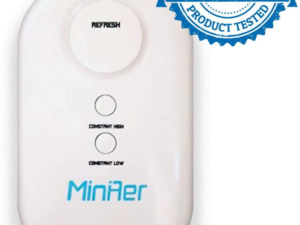
Mini Aer Small Room Air Purifier
$149.00 Add to cart -
Sale!
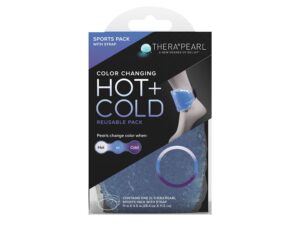
Thera-Pearl Sports Pack/Hot Cold
Original price was: $14.99.$12.99Current price is: $12.99. Add to cart -

3 Somadome Sessions Gift Card
$135.00 Add to cart -

20 Minute Somadome Gift Card
$45.00 Add to cart -
Sale!
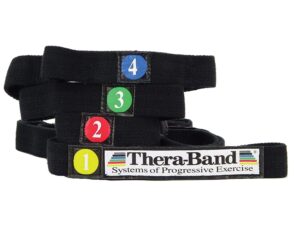
TheraBand® Stretch Strap
Original price was: $19.99.$14.99Current price is: $14.99. Add to cart -
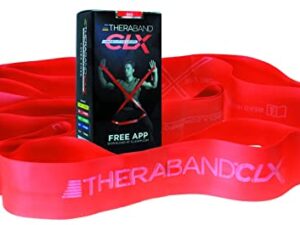
TheraBand CLX Connective Loop
$14.99 Select options
May Flowers-Life Hack
April Showers Bring 5 Flower Hacks What do you get when you combine soda, vodka, apple cider vinegar, hair spray & bleach? Some incredible ways to preserve your flowers this season. Sure, April showers bring May flowers, but mother nature went a tad over board with it this April. So how well are you prepared…
Read More#FeelBetterBoston Recap
#FeelBetterBoston Recap The inaugural #FeelBetterBoston Massage & Community Wellness event over Marathon weekend left people with a smile on their face and genuine appreciation for all that was provided. We knew this being the first time we held such an event that we would be competing with the likes of the infamous BAA Expo and other…
Read MoreHow Do You Roll??
How Do You Roll?? Are Foam Rolling Advocates Stretching the Truth? Foam rolling is one of the most common means of self-care for so many people. It has been thought to provide many benefits such as enhanced performance, improved flexibility and speed, pain reduction and muscle recovery. Often it is referred to as a self-massage technique,…
Read MoreOn the Mend
On the Mend As we quickly approach the holy grail of running events, the Boston Marathon, we start to see a rise in our battered and beaten road warriors. Overuse conditions from months of increased training, acute injuries from falls on slippery roads and chronic aches and pains, all result in the patient surrendering to…
Read MoreLife Hack: Watch the SB LIII on TV, but LISTEN on the Radio
Life Hack: Watch the SB LIII on TV, but LISTEN on the Radio So, our beloved Pats are back in the big game again. I’m not going to relay stats and numbers that drive home the dynasty known as the New England Patriots. We are all aware of them. However, if you want to enjoy…
Read MoreCortisone Injections: Yay or Ney?
Cortisone Injections: Yay or Ney? As massage therapists, we often see patients who have been struggling to find an answer for a particular pain problem. Some of these cases are acute (sudden onset) where others may be chronic (reoccurring over a long period of time). It is not uncommon to have a patient ask us…
Read MoreChiropractic Care at The Boston Bodyworker
Chiropractic Care at The Boston Bodyworker We are excited to announce the arrival of Dr. Jean Kelly of Momentum Healthcare to our office. Dr. Kelly has been practicing in our building for the past 10 years and has been a friend to The Boston Bodyworker for almost 20 years. We are honored to have her…
Read MoreSpine Health: Don’t Ignore It!
Spine Health: Don’t Ignore It! The new year always provides us with the feeling of having a clean slate. Let’s face it, most of us don’t take very good care of our spines. 2019 can be the year that your resolutions come true. This lack of care can lead to physical discomfort and make us…
Read MoreLife Hack: Drink Tea
Life Hack: Drink Tea With the rainiest and most dreary Fall in recent time behind us and winter now in full swing, the need for us to provide optimal care for ourselves is high. Despite American’s love affair with coffee, tea is really the more versatile of the beverages. Most of us reach for a…
Read MoreLife Hack: Forward Head Posture
Life Hack: Forward Head Posture How many times in the course of a day do you roll your shoulders and neck around to alleviate “the spot” in between your shoulder blades. There are several reasons for the discomfort you are experiencing, but one way to resolve this is to do what is known as a…
Read More

